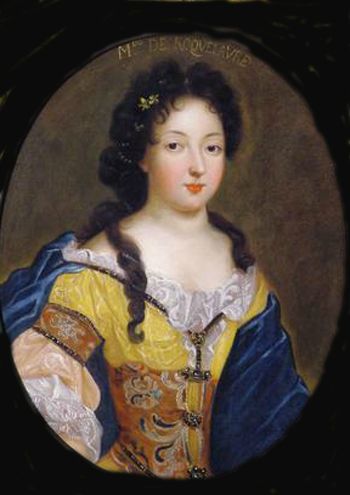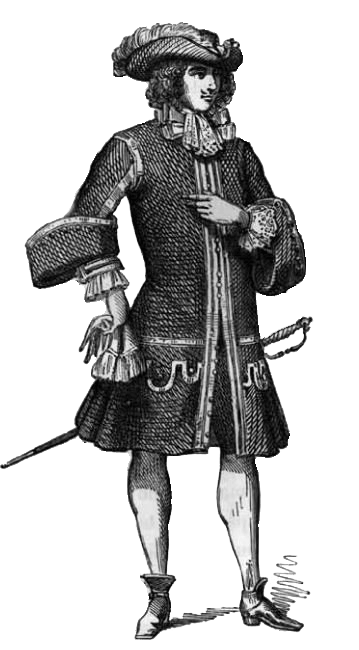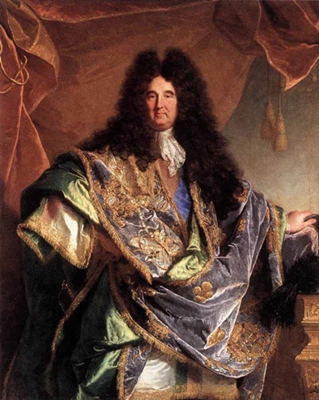Dangeau’s Diary, November 1686

7th. — In the evening there was an Italian opera performed, at which the King was present. I am informed that the servants of the Dutch ambassador have killed, in Paris, one of their fellows, who had become a catholic. The lieutenant criminal and Monsieur de La Reynie have written to the King to know how they were to act. The King commanded them to make the necessary examinations. They have issued arrests against the servants, two or three of whom have been seized and committed to prison, notwithstanding the remonstrances of the ambassador. Yesterday I was told, that the King, dining with Cardinal Ranuzzi, the first time he took wine, rose, took off his hat and drank to the health of the Pope, saying to the Cardinal ; “Sir, it is right that I should commence by drinking the health of his Holiness.” After having drunk, the King sat down again and put on his hat. The Cardinal remained standing, and uncovered, and a moment after requested the King’s permission to drink to the health of the greatest King on the earth and to the prosperity of Christianity. He drank standing and uncovered. The King was seated and covered, and only touched his hat at the commencement of the compliment, and after the Cardinal’s toast.
11th. — The King was informed, when he awoke, that the small pox had appeared upon the Duchess de Bourbon and he immediately ordered that Monseigneur and the Dauphine should set off for Versailles.
13th. — Madame de Bourbon’s illness is so serious, that she has confessed and communicated. Madame de Montespan, who had been constantly with her, had got into her carriage, in order to go to Paris, thinking her dead. A favourable crisis, however, took place, and in the evening she was considered out of danger. The King wished to enter her chamber, but Monsieur le Prince, who can scarcely move, had strength enough to get into the room before him and spoke so earnestly and tenderly to the King, in order to dissuade him from his intention, that his Majesty acceded to his wish.
14th. — The eruptions have appeared on Madame de Bourbon in great abundance. The fever has left her and the King will set off tomorrow for Versailles. Madame de Montespan has quitted Paris for Fontainebleau, to attend Madame de Bourbon, whom she had left, thinking her dead.
18th. — About seven o’clock in the morning, the King submitted to the great operation, being weary of a disorder which incommoded him so much and being desirous of a perfect cure. There was, however, no danger. This resolution has suprized every one; it was taken six weeks ago, and no body was acquainted with it, except Monsieur de Louvois, Madame de Maintenon, father de la Chaise, the chief physicians, Fagon and Felix. The King had mentioned something of it at Fontainebleau, to Monsieur de la Rochefaucault. He underwent the operation with admirable fortitude. Felix had an instrument made, invented by himself, and which saved several cuts with the scissars. As soon as the operation had been performed, the King sent to inform Monseigneur of it, who was engaged in the chase. It was likewise communicated to the Dauphine as soon as she had risen, as well as to Monsieur and Madame who were at Paris, and Monsieur le Prince and Monsieur le Duc, who were at Fontainebleau with the Duchess de Bourbon, forbidding them, however, to come. After dinner, the King held his council, received many courtiers, and was desirous of having a drawing-room, and that the grand game of reversi should be begun, which he has ordered at Fontainebleau.
22d. — The King has passed the night very well. He slept seven or eight hours. He saw all the courtiers in the morning and evening. The Prince de Conti has seen him, and, at their interview, the King said to him, “Those who are not near me, think my disorder much worse than it is, but, when they see me, they easily perceive that I suffer scarcely any thing.” The Prince de Conti expressed, in terms the most respectful, the joy he felt at finding his Majesty so well. He will set off tomorrow, after having again seen his Majesty at his bouillon.



